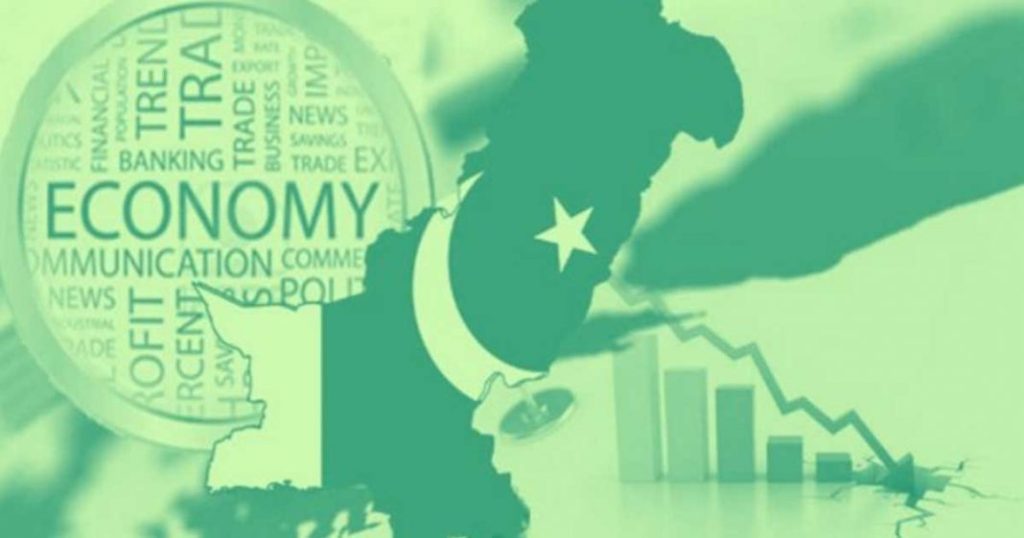
The Economy Of Pakistan Still Faces Multiple Challenges Amid Different Factors: SBP Annual Report
The real GDP growth fell to the third-lowest level since FY52, whereas average National CPI inflation spiked to a multi-decade high.
ISLAMABAD ( Web News )
The State Bank of Pakistan (SBP) released today its Annual Report on the State of Pakistan’s Economy for the fiscal year 2022-23.
According to the report, Pakistan’s economy faced multiple challenges during FY23, as longstanding structural weaknesses exacerbated the impact of successive domestic and global supply shocks of unprecedented nature.
The country’s macroeconomic situation had already begun to deteriorate since the second half of FY22 in the aftermath of the Russia-Ukraine conflict, elevated global commodity prices, and an unplanned fiscal expansion. The situation worsened during FY23 owing to floods, delay in the completion of the 9th review of the IMF’s Extended Fund Facility (EFF) program, continuing domestic uncertainty, and tightening global financial conditions.
Particularly, the devastating monsoon floods significantly dented economic activity, fueled inflationary pressures, increased stress on external accounts, and widened fiscal imbalance because of spending on relief efforts. Similarly, the uncertain global economic and financial conditions, softening – but still elevated – global commodity prices, higher debt servicing, and reduced external inflows had implications for various sectors of the economy.
The confluence of these developments substantially weakened Pakistan’s macroeconomic challenges and performance during FY23. The real GDP growth fell to the third-lowest level since FY52, whereas average National CPI inflation spiked to a multi-decade high. While the current account deficit narrowed considerably, limited foreign inflows maintained pressures on the external account leading to a decline in SBP’s FX reserves.
Meanwhile, reflecting the unsustainable fiscal policy stance of the past many years, a sharp increase in interest payments, persistently large energy subsidies, and lower–than-targeted tax collection contributed to less than envisaged fiscal consolidation during FY23.
The report notes that Pakistan’s economic performance in FY23 highlights the importance of addressing perennial structural impediments that pose serious risks to the country’s macroeconomic stability.
Foremost among these are inadequate and slow tax policy reforms that have constricted the resource envelope, even for meeting current expenditures. On the other hand, inefficiencies in public sector enterprises (PSEs) have led to a permanent drain on fiscal resources. These have squeezed space for development spending required to enhance the economy’s productive capacity. The anemic investment in physical and human capital as well as R&D has impeded the development of a
technology-intensive manufacturing base and the next level of value-added exports.
Moreover, stagnant crop yields and a lack of attention to the development of the food supply chain and to address food market imperfections have led to sustained reliance on imported food commodities.
These trends underpin the unsustainable current account balance, which has increased the country’s vulnerability to global supply shocks. The report indicates that this situation requires the initiation of broad-ranging reforms to address various
sectoral imbalances to ensure the availability of resources for economic growth and development.
Specifically, expediting tax policy reforms and speedy implementation of governance reforms in PSEs is instrumental in creating fiscal space for public investment in human and physical capital.
Furthermore, there is also a need to create a conducive environment to support foreign direct investment in exportable sectors, and to encourage technology transfers. Similarly, agriculture sector reforms are required to alleviate import reliance and for achieving price stability.
There is a need to expedite these reforms to achieve the high and sustainable economic growth required to absorb the new entrants in the labor market, improve social welfare and raise the general standard of living in the country.

